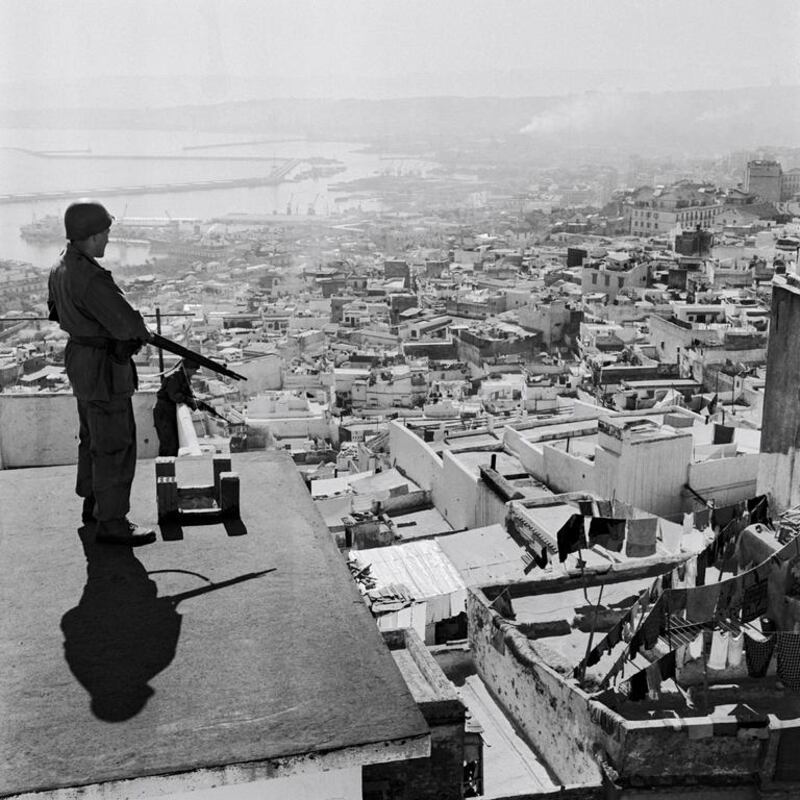On November 1, Algerians should be celebrating the 60th anniversary of the start of the Algerian War of Independence that put an end to 132 years of French colonial rule. It is, of course, a public holiday, but for the rulers, it is an opportunity to push the personality cult of president Abdelaziz Bouteflika. A 1,600-photo exhibition about his achievements will be on display in Algiers and the president will probably visit the martyrs’ memorial to place a wreath.
Meanwhile, the aspirations of the 1954 revolution have become a pipe dream. For many Algerians, the idea of building a just, modern, prosperous and democratic society has gone up in smoke, and yesterday’s de-colonisers seem worse than the colonisers.
Through economic mismanagement and political stagnation, Algeria’s rulers have squandered many opportunities for change. The grand revolution has ended in bitterness and disenchantment. A long harvest for a little corn. Instead of prosperity for all, the unemployment rate among educated young men and women has reached 20 per cent.
Right after independence in 1962, Algeria fell into the grip of power-thirsty clans. The power structure involves an erratic and unyielding network of interests and alliances. For many Algerians, it adds insult to injury that those who have taken power are not those who took an active part in the revolution. Many of the ruling elite were either in French prisons or in self-imposed exile in Tunisia and Morocco. Along with his mentor, the late president Houari Boumediene, Mr Bouteflika was in Oujda, Morocco, when other Algerian National Liberation fighters were subjected to napalm attacks, famine, arrests, torture and death.
Since the war of independence, the country moved from revolution to state capitalism, then plunged into unbridled liberalism, followed by a ruthless civil war in the 1990s. Millions of Algerians never savoured the victory of liberation. And six decades after the revolution, many blame the regime for the failure to use the country’s large oil and gas resources to develop the country.
The leadership has lacked the political will to breathe life into the stagnant economy by easing bureaucracy and steering away from its dependence on oil and gas, which make up 97 per cent of export revenue. Algeria has failed to develop its industrial and agricultural sectors which, in 2013, represented a mere five per cent of its gross domestic product.
Many observers believe that the political elite that have ruled since the war of independence is getting old and the system is increasingly on its last legs. But this was also the perception on October 5, 1988, when thousands of young people took to the streets to express their disenchantment. The government responded with live fire and, for the first time since independence, Algerians killed Algerians. Five hundred people died and scores were tortured.
These riots gave birth to a multiparty system, a democratisation process, a free press, and the first free parliamentary elections in the country, which the Islamic Salvation Front was poised to win in January 1992.
Then the generals stepped in and toppled the president, Chadli Bendjedid, cancelled the elections, stopped the democratisation process and arrested thousands of people who were jailed in concentrations camps in the Sahara. The coup triggered the “dirty war” that, according to Amnesty International, claimed as many as 200,000 lives.
Backed by the military, Mr Bouteflika became president in 1999 in an election in which all other candidates had withdrawn. He pledged to give back Algeria “its dignity and pride”, then amended the constitution to grant himself further terms in power. He is now 77 and in poor health after a minor stroke last year, and has spent a great deal of time in a French military hospital.
In April 2011, when the Arab Spring swept through neighbouring Tunisia and Libya and brought down their autocratic governments, Mr Bouteflika promised political reforms, only holding on to power through chequebook politics.
But Algeria still has all the ingredients for revolution. Many people hold the political class in contempt and are outraged that the leadership, including ruling party secretary Amar Saadani, have large investments in property in France. The regime’s links to the former colonial power have lessened the impact of oft-cited propaganda slogans invoking “subversion”, “foreign hands” and “enemies of the revolution”.
Key figures such as former prime minister Mouloud Hamrouche have called on the regime and the opposition “to safeguard the national interest and map out a smooth transition toward democracy”. But will the decision-makers listen?
The regime, which has enjoyed more than a decade of booming oil revenues and a comfortable foreign exchange reserves of more than $200 billion (Dh735bn), thinks it can still buy social peace.
But there are many who, like the revolutionaries of 1954, want to take matters into their own hands.
Dr Abdelkader Cheref is a professor at the State University of New York at Potsdam





